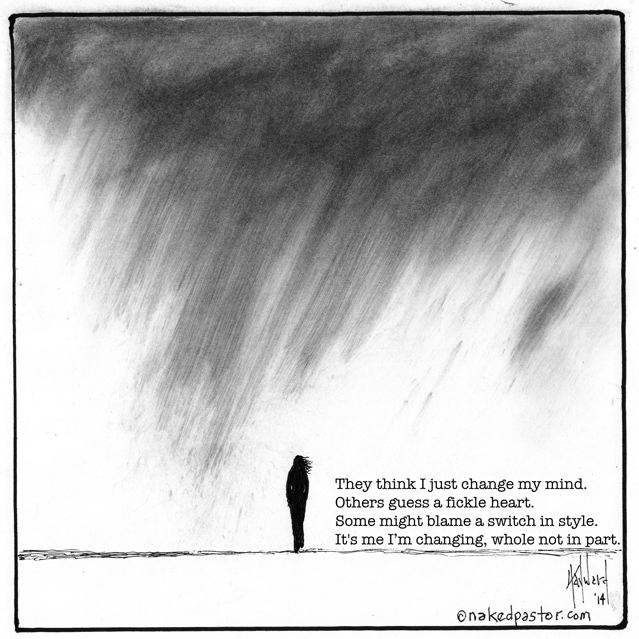 Tucked away in Romans 14: 10 is an obscure little verse that I feel is absolutely crucial to the understanding of community health. I remember in my younger years arguing vehemently for this or that side of the argument: whether a believer could drink or not, etc… or whether he or she shouldn’t if in the company of those who had problems with drinking. Oh yes, how well I remember those debates. Then I remember in more recent years arguing for the sake of freedom and railing against those who would oppress it. But gradually the importance of this verse has changed this and captivated my mind:
Tucked away in Romans 14: 10 is an obscure little verse that I feel is absolutely crucial to the understanding of community health. I remember in my younger years arguing vehemently for this or that side of the argument: whether a believer could drink or not, etc… or whether he or she shouldn’t if in the company of those who had problems with drinking. Oh yes, how well I remember those debates. Then I remember in more recent years arguing for the sake of freedom and railing against those who would oppress it. But gradually the importance of this verse has changed this and captivated my mind:
Why do you pass judgment on your brother or sister? Or you, why do you despise your brother or sister?
And this is what it all comes down to: judging and despising. I see these two things operating all the time in our community. On the one hand you have someone who has worked hard at becoming an exemplary believer, who practices his or her idea of religion, abstains from certain foods, liquids and practices, and observes spiritual disciplines that would put us to shame, and what happens: they judge those who do not observe the same rules or follow their spiritual walk. They look at them religiously with holy judgment because they are smudgy in their unsaintliness and impure in their spiritual walk. They judge them as sinners, or at least less holy.
Then, on the other hand, someone thinks they’ve come to some revelation, directly from God of course, and has reached a certain level of maturity, spiritual insight, practice and liberty, and what happens? They despise those who haven’t reached the level they’re at, who haven’t had the same revelation, who aren’t as spiritually insightful, who aren’t as liberated. They despise them as spiritually undeveloped children. In both cases, the judgers and despisers look down on others. They don’t love or respect them.
Ah, it never ends. These two things happen simultaneously and perpetually in the life of the community. When we think it is theological exactitude or moral perfection or missional vision that is the point, these are not the point at all. They are important. But they are only the extras. In the last analysis, it’s not going to be what theology you embraced, what spiritual disciplines you practiced, what vision you crafted and pursued, but did you love one another. I’m beginning to wonder if we’ll ever, ever get that.
The picture is an original woodcut I just completed, my first Nude, measuring 4″x5″, available HERE and HERE.











